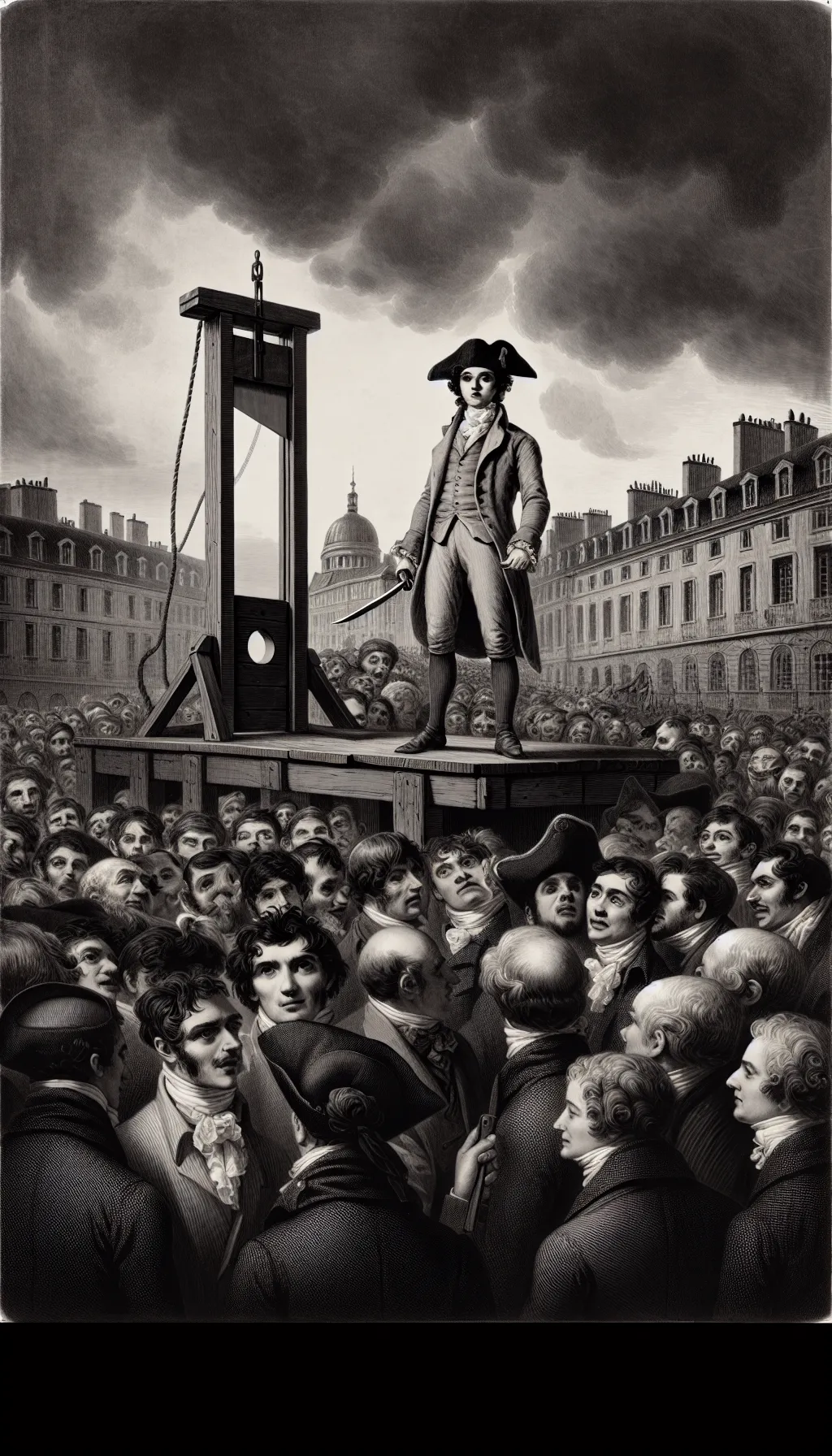France – The Fall of Danton – April 5, 1794
TLDR;
- Event: Georges Danton, a key figure in the French Revolution, was executed by guillotine on April 5, 1794, during the Reign of Terror.
- Background: Danton’s calls for moderation and opposition to the Committee of Public Safety’s excesses led to his arrest on charges of corruption and counter-revolutionary activities.
- Trial and Execution: The trial was swift and manipulated, with Danton and his allies denied a fair defense. His last words were a defiant display of his character.
- Impact: Danton’s execution symbolized the Revolution’s descent into chaos and intensified fears about Robespierre’s power, despite Danton’s enduring popularity among some Parisians.
–
Story
The air in Paris was thick with tension on April 5, 1794, as the crowd gathered around the guillotine, their breath visible in the chilly spring air. Georges Danton, once a hero of the Revolution, now stood on the scaffold, his fate sealed by the very revolution he helped ignite. His booming voice, which had once rallied the masses, now echoed defiantly as he faced his end.

Danton was a man of contradictions—a fiery orator and a pragmatic politician. He had been instrumental in the overthrow of the monarchy and the establishment of the First French Republic. Yet, as the Revolution spiraled into the Reign of Terror, Danton’s calls for moderation and his opposition to the excesses of the Committee of Public Safety, led by Robespierre, made him a target.
The turning point came when Danton, along with his allies, was arrested on charges of corruption, counter-revolutionary activities, and accusations of conspiring to restore the monarchy—a charge likely exaggerated for political purposes. The trial was swift, heavily manipulated, and the accused were denied the right to properly defend themselves, ensuring their conviction.
As he stood before the guillotine, Danton’s last words were a testament to his enduring spirit: ‘Do not forget to show my head to the people; it is well worth seeing.’
Danton’s execution marked a chilling moment in the Reign of Terror, a period where revolutionary ideals were consumed by paranoia and bloodshed. His death was not just the fall of a man, but a symbol of the Revolution’s descent into chaos. While the crowd was present, some accounts suggest that many Parisians were uneasy about Danton’s execution, as he remained popular despite the charges. His death did, however, intensify fears among other revolutionaries about Robespierre’s growing power.
–
| Would a different approach by Danton have changed the course of the French Revolution? |